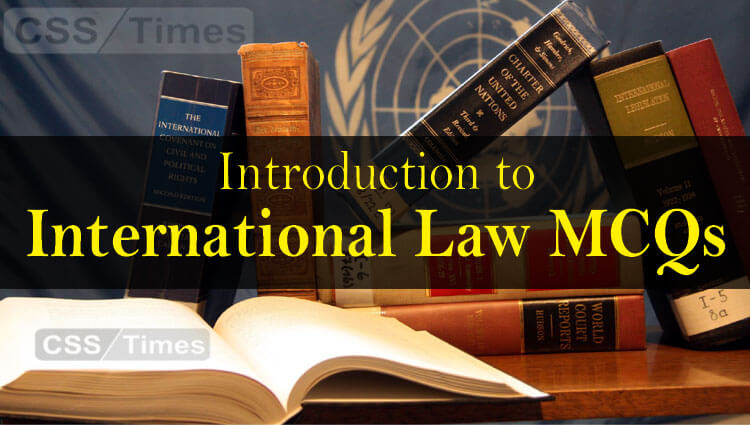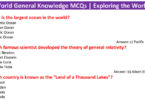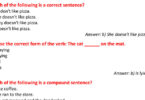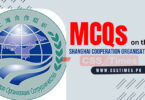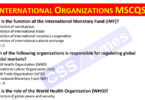What is international law?
(a) A binding regulations on states
(b) A combination of tradition, custom, and international agreements that sometimes limit the behaviour of states
(c) Any law passed by a country that deals with international relations
(d) A law of physics that applies in all places
Answer: b
Who coined the term International Law?
(a) Jeremy Bentham
(b) Pufendorf
(c) Hugo Grotius
(d) Oppenheim
Answer: a
Who is considered the father of International Law?
(a) Jeremy Bentham
(b) Pufendorf
(c) Hugo Grotius
(d) Oppenheim
Answer:. c
International Law is not true Law but positive international morality only”. Who said it?
(a) Pufendof
(b) Austin
(c) Bentham
(d) Pollock
Answer: b
Who said international law is a collection of rules governing relations between states
(a) Jeremy Bentham
(b) Pufendorf
(c) Hugo Grotius
(d) Oppenheim
Answer: a
Hugo Grotius understood international law as:
(a) An instrumental foreign policy outlook in which political virtue was equated with astuteness in the development and employment of state power.
(b) Potentially restricting war and expanding peace by clarifying standards of conduct which were insulated against all religious doctrines and could therefore govern the relations of all independent states, Protestant and Catholic alike.
(c) A doctrine and an arrangement whereby the power of one state (or group of states) is checked by the countervailing power of other states.
(d) None of the above.
Answer: b
What does Jus ad bellum mean?
(a) Justice and beauty.
(b) Justice and order.
(c) The principle that states must observe treaties.
(d) Laws of war governing when it is legal to use force or wage war.
Answer: d
What is necessary before a rule can be considered customary international law?
(a) Evidence of general state practice.
(b) That it is enshrined in a treaty.
(c) Evidence that states accept such practice as law.
(d) Both a and c.
Answer: d
What are the three levels of institutions in modern international society?
(a) States, NGO’s, IGO’s.
(b) Constitutional institutions, fundamental institutions, and regimes.
(c) Local, national and international.
(d) Not one of the options given is correct.
Answer: b
What are the distinctive characteristics of the modern institution of international law?
(a) A peculiar language of reasoning and argument.
(b) Multilateral form of legislation.
(c) A strong discourse of institutional autonomy.
(d) All of the options given are correct.
Answer: d
How has the nature and scope of international society been conditioned by international legal instruments?
(a) They have defined the nature of legitimate statehood.
(b) Legal instruments have given it a code of ethics, and a universal standard of order.
(c) They have clarified the bounds of rightful state action, international and domestic.
(d) a and c.
Answer: d
What are the distinctive characteristics of international legal arguments?
(a) They tend to be bound by the policies of states.
(b) They are limited to the scope of the legislation at hand.
(c) They are rhetorical as well as logical.
(d) b and c
Answer: d
What is legal positivism?
(a) The idea that legal rules have legitimacy from their logical and practical derivation from a fundamental “grundnorm”.
(b) The idea that natural law is no different than positive law, and that they are interdependent.
(c) The idea that authority of legal rules comes from their status as the commands of a sovereign authority.
(d) a and c
Answer: d
How is the neo-liberal approach to international law limited?
(a) By its inability to explain the development of law in areas where the self-interests of states are unclear.
(b) By the failure to explain the origins of the modern system of international law.
(c) By its rejection of the idea that international law constitutes the identities and interests of states.
(d) The neo-liberal approach emphasizes the domestic origin of state preferences as, in turn, international law
Answer: d
What can be said about the New Haven School?
(a) The school where the realist approach to international law was conformed.
(b) It is also known as the policy approach
(c) It is also known as the legal internationalism approach.
(d) It borrows from positivism and naturalism.
Answer: b
What is the “New Stream” critique of Liberalism?
(a) The determinacy of international legal rules is questionable.
(b) The underlying logic of Liberalism in international law is incoherent.
(c) International legal thought operates within a confined intellectual structure.
(d) All of the options given are correct.
Answer: d
Since the end of the Cold War, some foreign affairs experts believe that the world has moved toward a system.
(a) Bipolar
(b) Unipolar
(c) Regional
(d) Monetary
Answer: b
Which of the following is generally not considered to be a cause of war?
(a) God’s will
(b) Human nature
(c) Economics
(d) The international system
Answer: a
Which of the following is not a type of nongovernmental actor?
(a) MNC
(b) NGO
(c) GDP
(d) IO
Answer: c
How does domestic terrorism differ from state-sponsored terrorism?
(a) Domestic terrorism is sponsored by another government.
(b) State-sponsored terrorism is only used against military targets.
(c) Domestic terrorism is only used against military targets.
(d) Domestic terrorism has no ties to other governments.
Answer: d
The principle of jus cogens means:
(a) A peremptory norm of International Law
(b) A State is bound by the provisions of a forced treaty
(c) A successor State is bound by the acts, of a predecessor State.
(d) None of these
Answer: a
Who wrote the book International law?
(a) V Lowe
(b) A Cassese
(c) L D Guruswamy
(d) Goldstone
Answer: a
The doctrine, which accepted the “Law of Nature” as an independent source of rules of the law of nations, was propounded by:
(a) Bodin
(b) Machiavelli
(c) Hobbes
(d) Grotius
Answer: d
What is the doctrine of “inter-temporal law”?
(a) Means that in case of conflict between Municipal Law and International Law, the latter will prevail.
(b) Relates to the question of application of different legal systems prevailing at successive periods.
(c) Means that the principle of natural justice take precedence over other rules.
(d) None of these
Answer: c
How often in a year is the “American Journal of International” published?
(a) Annually
(b) Quarterly
(c) Monthly
(d) None of these
Answer: b
Where is the secretariat of American Society of International Law located?
(a) San Francisco
(b) Ann Arbor
(c) Washington DC
(d) New Jersey
Answer: c
Where from is “The International Law and Comparative Law quarterly” published?
(a) London
(b) New York
(c) Paris
(d) Tokyo
Answer: a
Provisions of Municipal Law:
(a) are enforceable in international relations without any qualification
(b) are enforceable in international -relations if they are not in conflict with international law
(c) are not at all enforceable in international relations.
(d) None of these
Answer: b
Subject of International Law are:
(a) States
(b) Individuals
(c) Both a & b
(d) None of these
Answer: c
The leader of positive school of thought was:
(a) Bynkershok
(b) Stark
(c) Extradition
(d) None of these
Answer: a
Who wrote the book International law?
(a) B Clarke, J Maogoto
(b) D Fleck and M Bothe
(c) A Cassese
(d) L D Guruswamy & K Doran
Answer: a
Check our other MCQs collection below:
- Test Your Knowledge: English Grammar MCQs
- World General Knowledge MCQs | Exploring the World
- English Grammar MCQs: Test Your Language Skills with 50 Questions
- MCQs on the Shanghai Cooperation Organisation (SCO)
- International Organizations MCQs | General Knowledge MCQs
- Everyday Science MCQs | Food Science MCQs
- Islamic Studies MCQs (Set-I)
- International Relations MCQs (International political community Se-II)
- 200+ World General Knowledge MCQs
- Random General Knowledge Questions [Set-1]

